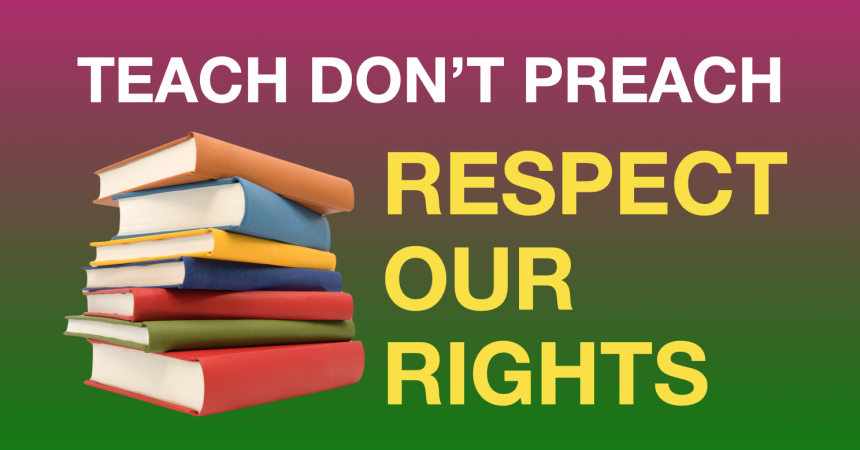
NCCA Religious Education course; Opting out is a Constitutional Right
If you are a non religious parent you have a Constitutional Right to opt your child out of the NCCA Religious Education course in second level schools. If any teacher forces your child into the NCCA Religious Education course complain about their behaviour to the Teaching Council. Don’t let schools or teachers bully your child into the course.
The Minister for Education, Joe McHugh and schools tell non-religious parents that the NCCA Religion course is suitable for all religions and none. Some schools make the course compulsory and others coerce students to take this course.
By supporting this NCCA Religion course the Minister for Education, Joe McHugh supports the evangelising of minorities into a religious way of life. He does not believe that contributing to the moral and spiritual education of students from non-religious families through religion is indoctrination or disrespects their philosophical convictions.
Nor does the Minister believe that exploring how the search for meaning has found, and continues to find, expression in religion while only acknowledging the non-religious interpretation of life is religious instruction.
The aims of the NCCA Religious Education course are evangelising, they undermine the Constitutional ad Human Rights of non-religious parents and their children. These are the aims of the NCCA Religion course that is in schools at present. There is a new specification due out in September 2019 and that is no better.
The aims of the NCCA Religious Education Course, at Junior and Senior Cycle, are as follows:
• To foster an awareness that the human search for meaning is common to all peoples, of all ages and at all times.
• To explore how this search for meaning has found, and continues to find, expression in religion.
• To identify how understanding of God, religious traditions, and in particular the Christian tradition, have contributed to the culture in which we live, and continue to have an impact on personal life-style, inter-personal relationships and relationships between individuals and their communities and contexts.
• To appreciate the richness of religious traditions and to acknowledge the nonreligious interpretation of life.
• To contribute to the spiritual and moral development of the student







0 Comments
No comments!
There are no comments yet, but you can be first to comment this article.